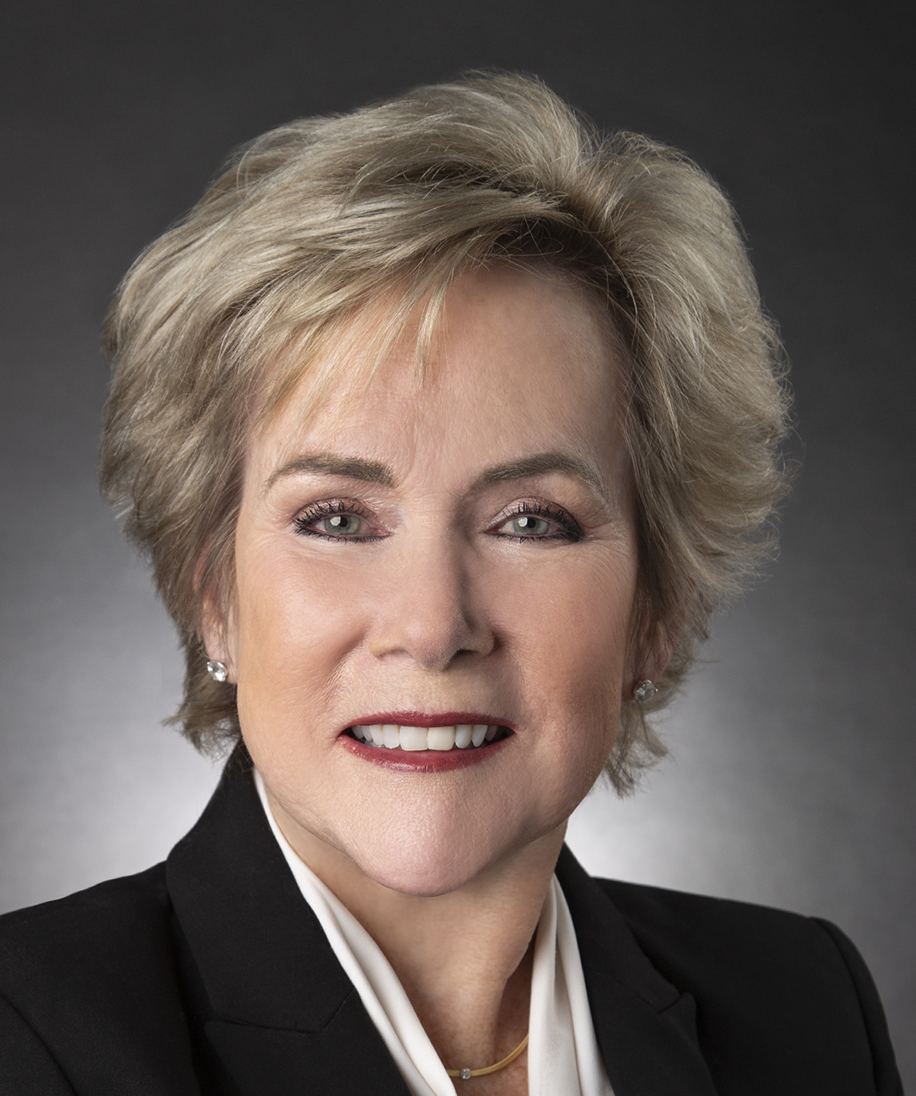Client Alert
CFTC Announces Interdivisional Climate-Related Risk Task Force
April 21, 2021
By Tara K. Giunta,Michael L. Spafford,Paige Rinderer,
& Katherine J. Berris
On March 17, 2021, Commodity Futures Trading Commission Acting Chairman Rostin Behnam announced the establishment of the Climate Risk Unit (“CRU”) to further advance Environmental, Social, and Governance (“ESG”) initiatives.[1] The CRU is an interdivisional group focused on accelerating “industry-led and market-driven processes in the climate—and the larger ESG—space critical to ensuring that new products and markets fairly facilitate hedging, price discovery, market transparency, and capital allocation.”[2]
The CRU will build on previous CFTC efforts to lead in the area of climate change and help shape the role that derivatives play in addressing climate-related risks and the transition to a low-carbon economy. Acting Chairman Behnam stated, “Climate change poses a major threat to U.S. financial stability, and I believe we must move urgently and assertively in utilizing our wide-ranging and flexible authorities to address emerging risk. The CFTC’s unique mission focused on risk mitigation and price discovery puts us on the front lines of this effort.”[3]
The goals of the CRU include:
- facilitating active dialogue with key stakeholders regarding emerging climate change risks and how best to address them;
- increasing understanding of derivatives and other products designed to address climate-related market risks and evaluating how such products can be regulated, supervised, and used to support the transition to a net-zero economy;
- increasing CFTC participation in domestic and international discussions on consistent standards and practices across derivatives products and markets;
- coordinating efforts to develop reliable and credible climate-related market risk data; and
- evaluating approaches to support the development of climate-related market risk tools and products.[4]
The formation of the CRU follows the 2019 establishment of the CFTC Market Risk Advisory Committee (“MRAC”), Subcommittee on Climate-Related Market Risk (“Climate Subcommittee”), as well as the CFTC’s September 2020 report entitled Managing Climate Risk in the U.S. Financial System (“Climate Report”).[5]
CFTC Climate Report Recommendations
The MRAC Climate Subcommittee[6] prepared, released, and unanimously adopted the September 2020 Climate Report[7], which contained 53 recommendations for mitigating the risks to financial markets posed by climate change. The first recommendation, and the one described as “the single most important step to manage climate risk and drive the appropriate allocation of capital,” is the establishment of a price on carbon.[8]
The report also emphasized that existing statutes provide U.S. financial regulators with flexible and wide-ranging authorities to address climate-related risks now.[9] The Climate Subcommittee recommended that financial regulatory agencies incorporate climate-related risks into their existing monitoring and oversight functions.[10] It further recommended that U.S. regulators work with international groups to address climate risks.[11]
Under the recommendations, the CFTC was advised to:
undertake a program of research aimed at understanding how climate-related risks are impacting and could impact markets and market participants under CFTC oversight, including central counterparties, futures commission merchants, and speculative traders and funds; the research program should also cover how the CFTC’s capabilities and supervisory role may need to adapt to fulfill its mandate in light of climate change and identify gaps in the CFTC’s regulatory and supervisory framework.[12]
The report also emphasized the need for clarifying the definition of materiality for disclosing climate risks and for establishing a standardized and consistent system for classifying climate risks.[13]
At the February 2021 CFTC Public MRAC Meeting, Climate Subcommittee Chairman Bob Litterman underscored the need for a fair, economy-wide carbon price and highlighted the difficulties posed by the lack of common definitions and meaningful standards related to climate risks.[14] While he noted that regulators have existing statutory authorities to begin addressing systemic risks posed by climate change, he stressed that the current climate risk disclosures are inadequate.[15]
Next Steps for the Climate Risk Unit
The newly announced CRU will implement and build on the recommendations outlined in the 2020 Climate Report. More broadly, we expect the CFTC’s ESG efforts will comprise a multi-pronged approach.
Data Collection and Rulemaking
The 2020 Climate Report recommended that the CFTC research how climate-related risks impact markets and market participants overseen by the agency, and use the conclusions from the research to evaluate existing CFTC rules and to consider further guidance and rulemaking.[16] As a result, we expect the CRU to seek—through voluntary or other means—to collect and evaluate data to better understand climate risks. This likely will lead to rule making. One Climate Report recommendation is that the CFTC consider expanding risk management rules and quarterly risk exposure reports to include material climate-related risks.[17] Other areas for potential new CFTC rulemakings include: monitoring and managing non-centrally cleared over-the-counter derivatives (“NCD”) for climate-related risks and capital and margin requirements of futures commission merchants and swap dealers, as well as initial margin and default fund rules, risk management rules, and capital requirements pertaining to central counterparties.[18]
Industry Cooperation and Input
A chief purpose of the CRU is to facilitate proactive engagement and dialogue with market participants, industry groups, clearinghouses, and exchanges on climate risks and the carbon markets.[19] As such, market participants and others can expect the CRU to engage with industry members in a similar manner to the LabCFTC, which meets directly with innovators and market participants to discuss new products and applications.[20] As a relatively smaller agency, the CFTC is often able to respond more quickly to changes in the market or industry, in comparison with other larger financial regulatory agencies. Similar to LabCFTC, it is expected that CRU will engage directly with the industry, host events and competitions, publish research, and engage with market participants on innovative new products in the carbon markets. CRU also will evaluate potential tools, including climate finance labs or regulatory sandboxes.[21]
Cooperation with Other Federal and State Regulators
CRU’s establishment coincides with other major policy initiatives by the Biden Administration to address ESG issues and, in particular, climate change.[22] CFTC Acting Chairman Behnam discussed this global approach at the International Futures Industry Conference on March 18, 2021. “As President Biden has said, this is in many respects an all of government approach—a global approach. I think having a multi-disciplinary approach is the right one, because there are so many angles and so many touchpoints to climate change.”[23] Similarly, the Securities and Exchange Commission (SEC) has issued Climate Change Guidance,[24] and is seeking further public comments on updating the reporting requirements for issuers to disclose “material decision-useful environmental, social, and governance, or ESG factors.”[25] This follows a series of SEC announcements regarding enhancing climate-related disclosures in public company filings.[26] Other agencies have announced similar initiatives.[27] The U.S. Treasury announced on April 18, 2021 the appointment of a climate czar to head the department’s new “climate hub.”[28] Furthermore, President Biden is expected to sign an executive order titled “Climate-Related Financial Risks” in April 2021 directing a government-wide strategy “to measure, mitigate and disclose climate risks facing federal agencies…and incorporate climate risk into their supervision of major industries and the lending of federal funds.”[29]
How the CFTC, the SEC, and the other agencies coordinate their actions and cooperate will be interesting, and may determine the ultimate success of the Biden Administration’s all-of-government approach. In particular, cooperation between the SEC and the CFTC, two agencies with overlapping jurisdiction but different regulatory focus (one disclosure driven, the other market focused), will be critical. Look also for increased engagement with the EPA. A key CRU objective, and a necessary component of growing the carbon markets, is the development of a carbon pricing mechanism.[30] Emissions trading programs, renewable energy credits, and potentially related derivatives products may be key areas for innovation. One wild card will be the states, many of which are very active and may have different agendas. In particular, the Regional Greenhouse Gas Initiative and California are some of the more active carbon trading markets operating in the U.S. One area of likely review will be the effectiveness of those markets and how to expand and improve them to better align with derivatives. In sum, the CRU provides a useful mechanism for the CFTC to engage with other regulators and, hopefully, promote collaboration, rather than competition.
International Engagement
International engagement and cooperation has been a recent CFTC priority and may increase. Based on the Climate Report recommendations, CRU likely will engage in international forums such as the Central Banks and Supervisors Network for Greening the Financial System (“NGFS”), the Coalition of Finance Ministers for Climate Action, and the Sustainable Insurance Forum.[31] CRU’s interdivisional approach will allow it to build on CFTC in-house expertise and existing cross-border cooperation with foreign regulators established by the CFTC’s Office of International Affairs, to exchange information and draw lessons on the monitoring and management of climate-related financial risks by foreign counterparts.[32]
The global nature of the risks posed by climate change, the interconnectedness of the global derivatives market, and advancements in international carbon markets[33] demonstrate the need for international cooperation and coordination. Moreover, the European Union, the United Kingdom, and other countries have implemented their own ESG initiatives. CRU intends to facilitate “increased participation in domestic and international fora aimed at building consensus for consistent standards, taxonomies, disclosures, and practices across derivatives products and markets, as well as related clarity on regulatory, capital, and accounting standards.”[34]
There are active carbon markets in Europe and other areas outside the U.S. It is likely the CRU will seek to collaborate with international regulators on establishing international standards and advancing the U.S. and global trading of carbon credits or their equivalent, as the CFTC joins “governing bodies around the world recognizing the need to reduce carbon emissions.”[35]
Digital Assets
The CFTC has led U.S. regulators in supporting innovation in the evolving digital assets and virtual currency markets, and regulating or pursuing enforcement action when necessary.[36] With CFTC’s increasing emphasis on addressing climate-related risks, the digital asset markets have reacted. Already, we are seeing greater utilization of renewable energy sources and proof of stake systems to offset the high electricity consumption required by proof-of-work distributed ledger models.[37] More importantly, digital assets have embraced environmental initiatives and are promoting new energy efficient products. Indeed, digital products and trading may provide an important platform for developing standardization and carbon market growth and trading on a global scale.
Enforcement
Market participants and others can anticipate increased regulatory oversight, potential investigations, and enforcement actions from the CFTC and other financial regulators. There are three areas of potential focus. First, disclosure will be a key area of focus for not only the SEC but also the CFTC.[38] Both the SEC and the CFTC apply similar fraud standards, which empower each to pursue reckless conduct. Companies should expect additional scrutiny of ESG-related disclosures, and synergy between financial agencies.[39] A second focus will be sales or marketing fraud. Recently, Acting Chairman Behnam expressed concern over marketing claims about ESG and the “greenwashing” of products. The CFTC has broad fraud authority to pursue consumer protection goals and punish false or misleading claims of ESG benefits or risks. A third area will be benchmarks. The CFTC’s historical emphasis on price formation and the use of benchmarks to price derivatives will continue to be a focus. We anticipate that this increased federal focus on ESG reporting and compliance will likely lead to some regulated entities and individuals facing inquiries, investigations, and enforcement actions.
Conclusion: How Companies Can Prepare
Participants in the commodities markets should consider a number of actions as they evaluate how best to respond to evolving climate-related priorities and regulations.
Conduct Risk Assessment. Conducting an internal risk assessment to determine and establish a baseline of your company’s current risks and responsive policies and procedures.
Review Current Disclosures. Review existing disclosures and consider whether they are corroborated with supporting documentation, and correct any inaccurate or misleading statements/reports.
Develop Comprehensive Strategy. To the extent that you have not yet done so, take steps to develop a comprehensive strategy to respond to potential regulatory changes. If you have taken initial steps, reassess in light of the focus of the CRU to confirm alignment and/or make appropriate adjustments.
Implement Effective Controls. Assess your comprehensive approach to climate risk identification and mitigation and disclosure/reporting, as well as your internal control framework to ensure effective controls are in place.
Monitor Developments. In light of the “all-of-government” approach by the Biden Administration, ensure that there is internal coordination and alignment of what is being represented to different regulators, investors, and market participants so that you don’t have a right-hand/left-hand problem. We anticipate increased coordination and collaboration by these agencies that will share information and potentially coordinate investigation/inquiry strategies.
International. Counsel can assist in tracking domestic and global regulators’ policy developments, to ensure that company policies and procedures are in compliance with quickly evolving ESG requirements.
The CFTC and others are seeking to engage with market participants on these issues. Therefore, it is important for market participants to engage in the comment process for prospective climate-related risk rulemakings, as well as other communications and interactions with the agency. Experienced counsel can help market participants and others facilitate these communications and navigate the latest ESG priorities, rulemakings, and enforcement changes expected in the near future.
[1] Press Release, CFTC, CFTC Acting Chairman Behnam Establishes New Climate Risk Unit (March 17, 2021), https://www.cftc.gov/PressRoom/PressReleases/8368-21.
[2] Id.
[3] Id.
[4] Id.
[5] Press Release, CFTC, CFTC Commissioner Behnam Announces the Establishment of the Market Risk Advisory Committee’s Climate-Related Market Risk Subcommittee and Seeks Nominations for Membership (July 10, 2019) https://www.cftc.gov/PressRoom/PressReleases/7963-19; Press Release, CFTC, CFTC’s Climate-Related Market Risk Subcommittee Releases Report (Sept. 9, 2020) https://www.cftc.gov/PressRoom/PressReleases/8234-20; CFTC, Market Risk Advisory Committee, Managing Climate Risk in the U.S. Financial System: Report of the Climate-Related Market Risk Subcommittee (2020) https://www.cftc.gov/sites/default/files/2020-09/9-9-20%20Report%20of%20the%20Subcommittee%20on%20Climate-Related%20Market%20Risk%20-%20Managing%20Climate%20Risk%20in%20the%20U.S.%20Financial%20System%20for%20posting.pdf. (“CFTC 2020 Climate Risk Report”).
[6] The Committee was comprised of 35 members, including experts from financial markets, banking, and insurance sectors, data and intelligence service providers, agricultural and energy markets, and environmental and sustainability non-profit organizations, as well as academia. CFTC 2020 Climate Risk Report at 163-165.
[7] Press Release, CFTC, CFTC’s Climate-Related Market Risk Subcommittee Releases Report (Sept. 9, 2020) https://www.cftc.gov/PressRoom/PressReleases/8234-20.
[8] CFTC 2020 Climate Risk Report at 103.
[9] Id. at 42.
[10] Id. at 45.
[11] Id. at 50.
[12] Id. at 51.
[13] Id. at 53.
[14] CFTC Market Risk Advisory Committee, Bob Litterman, Subcommittee Chairman, Briefing Report of the Climate-Related Market Risk Subcommittee (Feb. 23, 2021), https://www.cftc.gov/PressRoom/Events/opaeventmrac022321.
[15] Id.
[16] CFTC 2020 Climate Risk Report at 98.
[17] Id. at 126.
[18] Id.
[19] Id.
[21] Press Release, CFTC, CFTC Acting Chairman Behnam Establishes New Climate Risk Unit (March 17, 2021), https://www.cftc.gov/PressRoom/PressReleases/8368-21.
[22] See Client Alert, Tara Giunta, Nicola Bonucci, Jonathan Drimmer, Top 10 Predicted Business and Human Rights Issues for 2021, Paul Hastings (Dec. 22, 2020), https://www.paulhastings.com/insights/international-regulatory-enforcement/top-10-predicted-business-and-human-rights-issues-for-2021.
[23] Jeff Reeves, Behnam details recent CFTC climate efforts at Boca-V, Futures Industry Association (Mar. 18, 2021), https://www.fia.org/marketvoice/articles/behnam-details-recent-cftc-climate-efforts-boca-v.
[24] Commission Guidance Regarding Disclosure Related to Climate Change, Release No. 33-9106 (Feb. 2, 2010), 75 Fed. Reg. 6290 (Feb 8, 2010).
[25] Public Statement, SEC, Public Input Welcomed on Climate Change Disclosures (Mar. 15, 2021), https://www.sec.gov/news/public-statement/lee-climate-change-disclosures.
[26] Client Alert, Tara Giunta, Morgan Miller, Caroline Wilson Roberts, Immediate Steps to Consider as SEC Task Force Targets ESG Reporting, Paul Hastings (Mar. 15, 2021), https://www.paulhastings.com/insights/client-alerts/immediate-steps-to-consider-as-sec-task-force-targets-esg-reporting.
[27] The Federal Reserve announced the establishment of a Supervision Climate Committee (“SCC”). “Kevin Stiroh to Step Down as Head of New York Fed Supervision to Assume New System Leadership Role at Board of Governors on Climate,” (Jan. 25, 2021), https://www.newyorkfed.org/newsevents/news/aboutthefed/2021/20210125. Treasury Secretary Janet Yellen also intends to create a climate-risk hub within the U.S. Treasury. Hearing on the Nomination of Janet L. Yellen to be Secretary of the Treasury, United States Senate Committee on Finance (January 2021). (In response to a question from Senator Sheldon Whitehouse, who asked, “I’m wondering where your senior-level climate person will be in the Department of Treasury. There’s no specific office. How are you going to staff addressing climate at the most senior levels of Treasury?” Secretary Yellen replied, “I will look to appoint someone at a very senior-level to lead our efforts and to create a hub within Treasury in which we particularly focus on financial system related risks and tax policy incentives toward climate change.”).
[28] Yellen names Treasury climate czar, Politico, (Apr. 19, 2021) https://www.politico.com/news/2021/04/19/treasury-climate-czar-john-morton-483112.
[29] Biden prepares sweeping order on climate-related risks, Politico (Apr. 15, 2021), https://www.politico.com/news/2021/04/15/biden-climate-risks-executive-order-481962.
[30] See Jeff Reeves, Behnam details recent CFTC climate efforts at Boca-V, FIA (March 18, 2021) https://www.fia.org/marketvoice/articles/behnam-details-recent-cftc-climate-efforts-boca-v.
[31] Id. at 125.
[32] See, e.g., CFTC, Joint Statement of the CFTC and the European Commission Following Meeting on Cross-Border Derivatives Regulatory Issues (Sept. 13, 2019). https://www.cftc.gov/PressRoom/PressReleases/8009-19.
[33] See EU Emissions Trading System (EU ETS), https://ec.europa.eu/clima/policies/ets_en.
[34] Press Release, CFTC, CFTC Acting Chairman Behnam Establishes New Climate Risk Unit (March 17, 2021) https://www.cftc.gov/PressRoom/PressReleases/8368-21.
[35] Id.
[36] See, e.g., In re Coinflip, Inc., d/b/a/ Derivabit, et al., Order Instituting Proceedings Pursuant to Sections 6(c) and 6(d) of the Commodity Exchange Act, Making Findings and Imposing Remedial Sanctions, CFTC Docket No. 15-29 (Sept. 17, 2015), http://www.cftc.gov/ucm/groups/public/@lrenforcementactions/documents/legalpleading/enfcoinfliprorder09172015.pdf.
[37] See Ryan Browne, Bitcoin’s wild ride renews worries about its massive carbon footprint, CNBC (Feb. 9, 2021), https://www.cnbc.com/2021/02/05/bitcoin-btc-surge-renews-worries-about-its-massive-carbon-footprint.html. See Marc Blinder, Making Cryptocurrency More Environmentally Sustainable, HARVARD BUSINESS REVIEW (Nov. 27, 2018), https://hbr.org/2018/11/making-cryptocurrency-more-environmentally-sustainable.
[38] Client Alert, Tara Giunta, Morgan Miller, Caroline Wilson Roberts, Immediate Steps to Consider as SEC Task Force Targets ESG Reporting, Paul Hastings (Mar. 15, 2021), https://www.paulhastings.com/insights/client-alerts/immediate-steps-to-consider-as-sec-task-force-targets-esg-reporting.
[39] Client Alert, Tara Giunta, Morgan Miller, Caroline Wilson Roberts, Immediate Steps to Consider as SEC Task Force Targets ESG Reporting, Paul Hastings (Mar. 15, 2021), https://www.paulhastings.com/insights/client-alerts/immediate-steps-to-consider-as-sec-task-force-targets-esg-reporting.
Contributors


